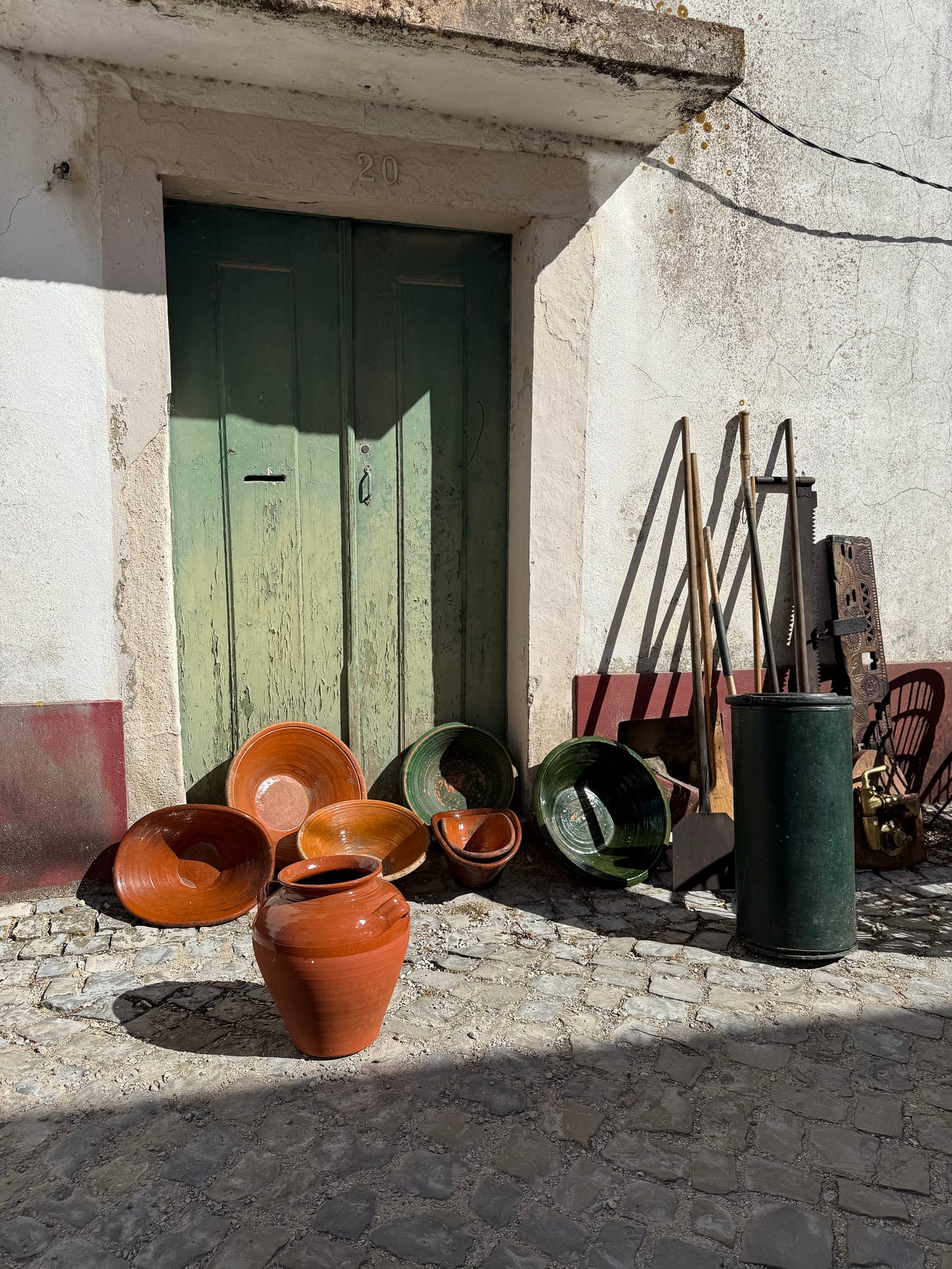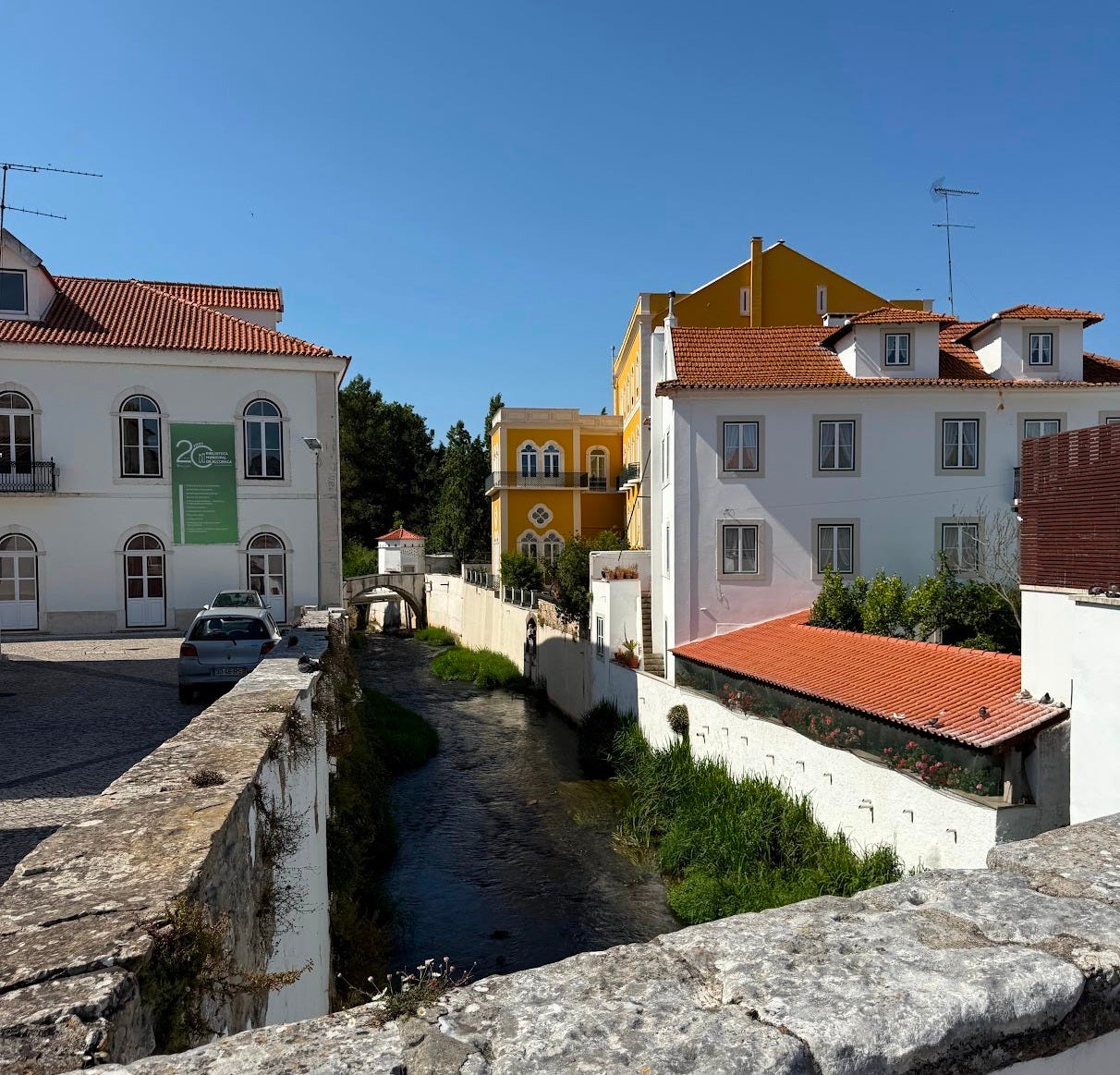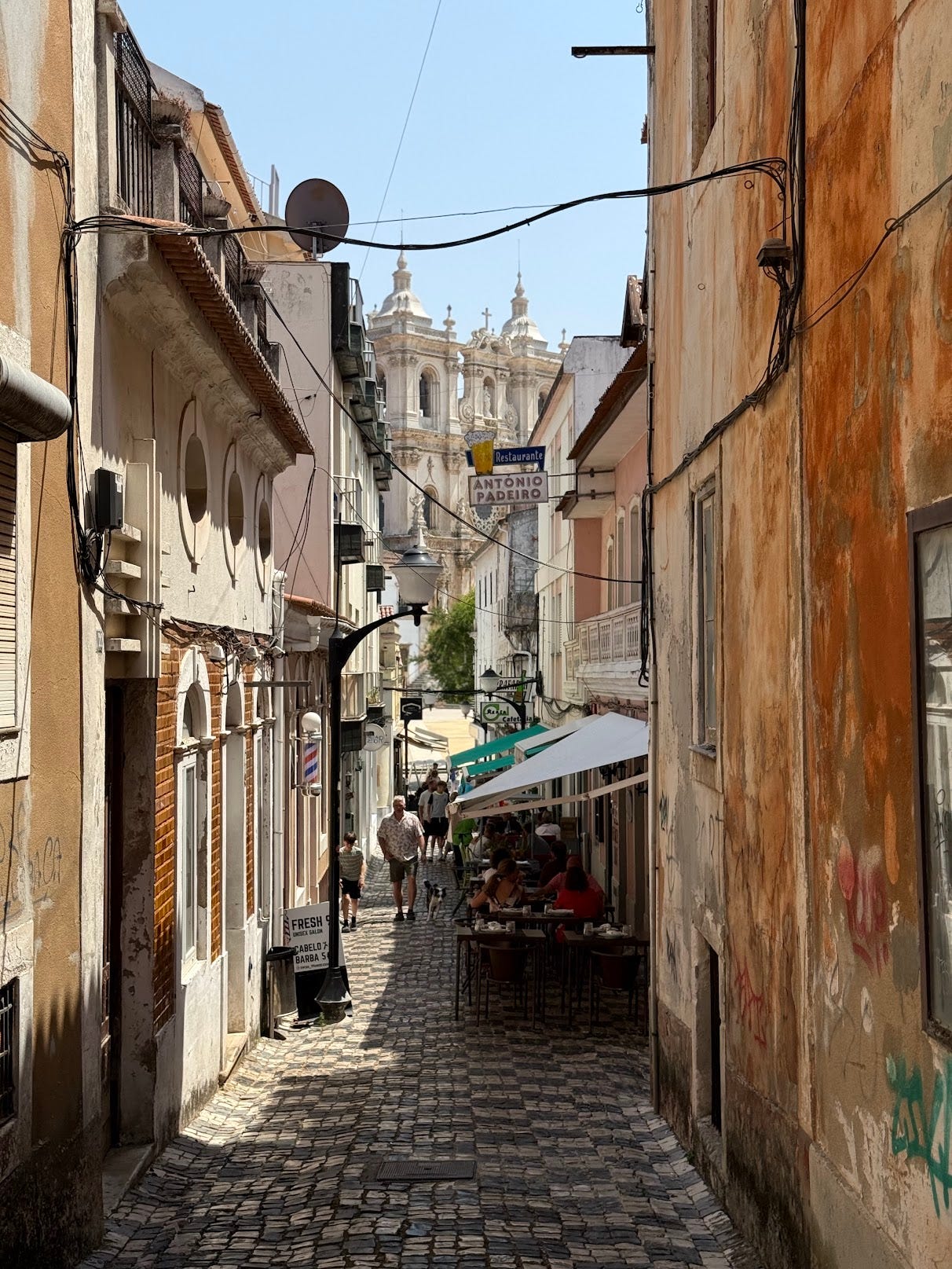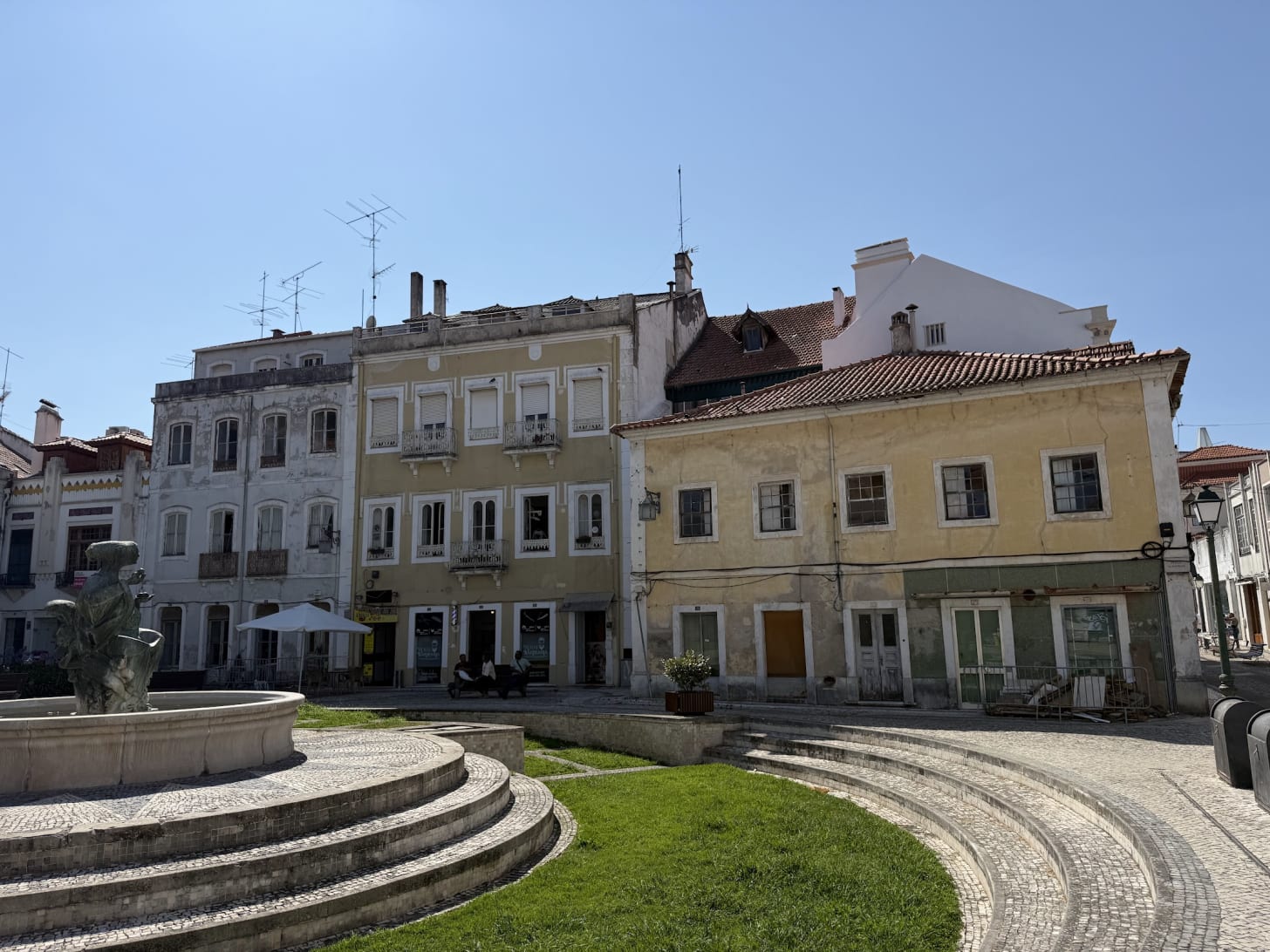A Preface to Five Thing 09
Or how I learned to love speaking Portuguese again for Tuesday, August 26, 2025.
Hi guys. It’s been a while since I sat down to write. I didn’t plan on taking two months off from Selectism, but looking back, it may have been the best thing I did all summer.
That break came in the form of a six-week trip to Portugal, where I ended up doing more personal exploration than I expected.
I hadn’t planned to dive so deeply into my family’s history there. I had already pieced together much of my family tree on Ancestry.com, and at one point my mother mailed off a 23andMe kit. That gave us new layers, including the discovery of Italo-Jewish roots before the family eventually settled on the western edge of the Iberian Peninsula.
Still, the digital branches weren’t enough. They showed our roots were Latin rather than Germanic, but they couldn’t explain why I wound up with the name “Jeff,” which feels about as Germanic as a name can get.1
Sons of immigrants inherit labels, and mine was the familiar one: “first-generation American.” Calling yourself first-generation American is like saying, “Relax, guys. I’m American like you. My parents just happened to come from somewhere else.” It was almost a push-back in some strange way.
Having a name like Jeff, just screams first-generation American.
Prior to this summer, I had not returned to Portugal in almost a decade, spending more time in its not to far east neighbor, Germany, for almost ten straight summers with Highsnobiety. On almost each of those trips, I contemplated flying to Portugal, but never did.

My hesitation to visit likely came from a disconnection I had to not only the place, but the language: while Portuguese was my first lingua, our household swapped to English by my teenage years, because assimilation.
Assimilation was critical in towns like Hartford, Connecticut, where identity was everything. Being more American and less European was a strategy for blending in, a way to avoid being seen or heard. Standing out could disrupt the order. But maybe disruption was exactly what I needed.
My parents could have named me João or José, like so many other Portuguese kids, but I suppose they saved me some hassles. Being American, fitting in, that was more important than where we came from. We look forward, right?
They did what they thought was best for my sister and me. Maybe a more Portuguese first name would have changed things, given me fewer chances, which sounds absurd in today’s world. But back in the seventies and early eighties, things were different for immigrants.
In the end, my name isn’t particularly memorable, and I’m more than fine with that.
I arrived in Lisbon, Portugal, with my two kids back back in early July. We spent some weeks in Lisbon, taking in everything everyone has ever said to do in Lisbon; it is all great. Portugal is vast, beautiful and quite a destination for the nomadic workforce that seems to occupy it’s famous beaches, yet to penetrate to the smaller ones, but coming.
In Portugal, people and language matter. I dare you to find more polite or cordial citizens anywhere. It’s considered poor form to join a conversation without first offering a cheerful preamble: a greeting, a small accolade, an acknowledgment of the other person’s presence and of your own interruption; this before you begin to speak. For someone as direct as me, it meant learning to step back, take a breath, and simply say hello. Something so mundane, so obvious, yet it forced me to unlearn bad English habits.
I also came to realize how much I had lost by letting my Portuguese sit dormant for so many years. During university, without practice, my skills deteriorated. I could understand what I heard, but my ability to speak was reduced to that of a novice. At one low point, I was so embarrassed by my own broken Portuguese that I avoided trying altogether.
That began to shift when I moved to Miami, where Spanish dominates not only the streets but daily life. In Miami, you don’t have the luxury of ignoring the language. Without it, you fall behind.
So I relearned Spanish, resisting the easy crutch of Spanglish, the third most spoken language in Florida. Instead, I slipped into another hybrid: Portuñol, that messy blend of Portuguese and Spanish. It wasn’t intentional so much as a kind of mental reactivation. The forced use of Latin languages brought back the Portuguese of my childhood, though at first it arrived fused and tangled with Spanish. With time, through constant use, I began to split them apart, and hear the differences, the contrasts, the textures I had once overlooked.

Both my Spanish and my Portuguese grew stronger. Nowhere was that more clear than this summer in Portugal, where for the first time in nearly thirty years I felt genuine confidence in a second language I had almost lost. That fluency allowed me to connect not only with family and new friends, but with a growing community of artisans keeping traditional crafts alive in a Portugal that has become a modern marvel of creativity and culture.
This Thursday in a longer than usual edition of “Five Things,” I’ll feature all the great stuff from Portugal.
Until then.
- Jeff
The name Jeff is a shortened form of the name Jeffrey or Geoffrey. Its origins are in ancient Germanic names, which were later introduced to England by the Normans after the Conquest of 1066.
The etymology of the name can be traced to two Germanic elements:
gawia or god: meaning "territory," "divine," or "God."
frith: meaning "peace."
Therefore, the name's meaning is often interpreted as "God's peace" or "peaceful territory." - Gemini AI





🔥🔥🔥🔥🔥
This was well said in many languages.